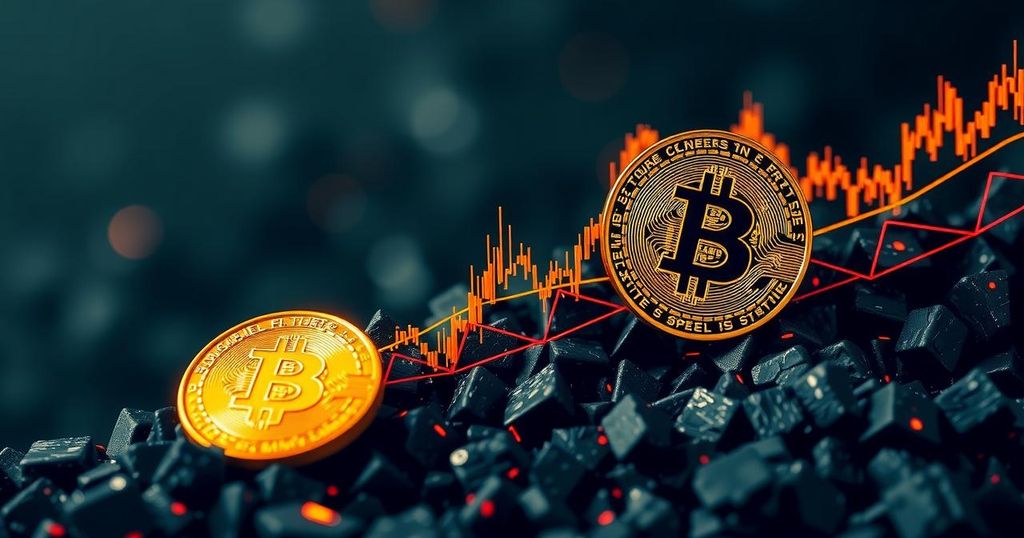Impact of Middle East Tensions on Bitcoin Prices: Insights from Arthur Hayes
Arthur Hayes of BitMEX asserts that escalating Middle Eastern tensions could lead to surges in oil and energy prices, favorably impacting Bitcoin’s value. He links Bitcoin’s worth to energy pricing dynamics, drawing historical parallels between oil crises and commodity price gains, and concludes that Bitcoin will retain or increase its value in fiat amid potential oil market disruptions.
In an insightful analysis published on October 16, Arthur Hayes, co-founder of BitMEX, posits that escalations in Middle Eastern tensions, particularly conflicts involving Iran and Israel, could precipitate significant increases in oil and energy prices, which would, in turn, benefit Bitcoin prices. Hayes emphasizes that if major oil and natural gas infrastructure were compromised, the resulting spike in oil prices would likely compel nations dependent on oil to seek alternatives, thereby inflating the cost of other energy resources and consequently raising Bitcoin’s value in fiat terms. As Hayes articulates, “Oil prices would spike” in response to intensified conflict, asserting that Bitcoin represents “stored energy in digital form,” linking Bitcoin’s value directly to fluctuations in energy costs. He elaborates on the mining dynamics, indicating that the profitability of Bitcoin mining would recalibrate concurrent with any shifts in hash rates. Historically, Hayes draws parallels to the period from 1973 to 1982, during which commodity prices surged significantly amid oil crises prompted by geopolitical tensions. He notes that Bitcoin, despite not existing in that timeframe, has shown correlation with commodity prices during inflationary episodes. While oil prices have recently decreased, and Bitcoin has rallied above $68,000, Hayes remains optimistic about Bitcoin’s resilience, suggesting that its value would sustain or rise amidst disruptions associated with Middle Eastern oil supplies. Concurrently, gold prices have reached new highs, with investors gravitating towards safer assets amid the prevailing geopolitical uncertainty. Hayes concludes that regardless of volatility in the oil market, Bitcoin would retain its value against energy inflation, reinforcing its status as a robust asset for investors. In the broader context, the ongoing geopolitical events involving Israel and Iran, characterized by missile exchanges and threats of retaliation, further underscore the potential for market volatility in both energy and cryptocurrency markets as investors seek refuge in commodities such as gold and Bitcoin.
The current geopolitical landscape, particularly tensions between Iran and Israel, has significant implications for global energy markets. With threats of military strikes and retaliatory actions, the stability of oil and gas supplies from the Middle East is under considerable scrutiny. Historical precedents demonstrate that geopolitical unrest can lead to sharp increases in energy prices, which have repercussions beyond just traditional commodities—extending to digital currencies such as Bitcoin. In this context, Arthur Hayes’ analysis of Bitcoin as a ‘stored energy’ highlights a growing trend among investors seeking safe havens amidst uncertainty.
In summary, Arthur Hayes suggests that rising tensions in the Middle East are likely to spur increases in oil and energy prices, which would enhance Bitcoin’s value relative to fiat currencies. The interplay between energy costs and cryptocurrency dynamics underscores Bitcoin’s role as an alternative investment, particularly in times of geopolitical uncertainty, as investors seek assets perceived as stable or advantageous in fluctuating markets.
Original Source: cointelegraph.com








Post Comment